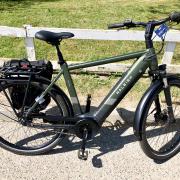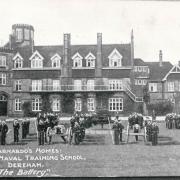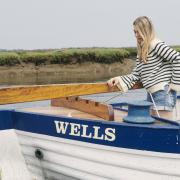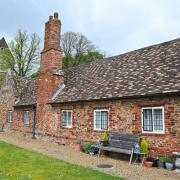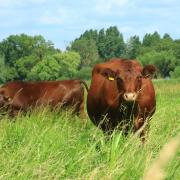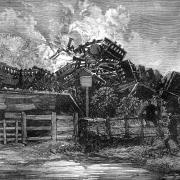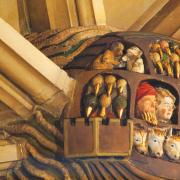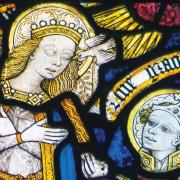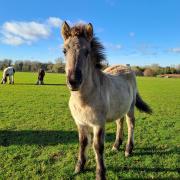Late in June, at eight in the morning, I stood outside Norfolk Wildlife Trust headquarters in Norwich, waiting to board a bus. I was one of 50 NWT members, supporters, volunteers and staff queueing on the pavement, heading to London to take part in Restore Nature Now, a march for wildlife and for our shared environment.
The youngest of us was under 10 years old; the oldest over 70; and most of us had never met before. Yet you would have struggled to find a more united group of people, brought together, as we were, by common purpose. Later in the day, our group of 50 from Norfolk Wildlife Trust formed a minuscule fraction of a column numbering more than 60,000 people – friendly, peaceful and united people – marching through Central London to Parliament Square, bound together both by desperation and by action for the natural world.
It’s not easy being a naturalist, especially not a naturalist on the wrong side of 50 years of age. The longer your memory stretches back through time, the more personal reasons you have for despair. Despite decades of tireless work by nature conservation non governmental organisations (NGOs) and enlightened private landowners, we have lost – and we continue to lose – both biodiversity and bio-abundance on a dreadful scale in the UK.
Gone are the spotted flycatchers which nested in my childhood garden. Gone the tree sparrows which nested by the church, and those in the next village to the south. Gone the turtle doves there too. Gone are the nightingales and tree pipits which sang on the heath a mile from school. Gone are the red-backed shrikes – the last of the UK’s once abundant red-backed shrikes – which nested in the Brecks. Gone the golden orioles nearby. Gone the taiga bean geese – one of only two flocks in the country – which wintered in the Broads. Dwindling – fast – the willow warblers which were the soulful sound of every Norfolk heath and common in my childhood.

Where are the insects which encrusted windscreens? Which meant that leaving summer windows open would result in clouds of midges around the lights? Where are the adders? Where the many hedgehogs which snuffled through our country childhoods? Where the glow-worms and the seething summer hordes of ringlets, gatekeepers and meadow browns? All gone. Or reduced to hollow echoes of their recent glory. All these declines and losses are unequivocally documented in State of Nature, a regular report on how wildlife and wild habitats are faring in our damaged land.
I was a meek child, in many ways. If I were to meet my 10-year-old self today, I would tell him to rebel a little more, to stop so blindly following rules, to have some self-belief. But 10-year-old me would never have heeded that advice. Nor would he have believed that 40 years later I would be carrying a badger placard through Trafalgar Square, clamouring – with countless others – for wildlife and the environment to be taken seriously by politicians. To be restored, for our common good, following clearly proven scientific methods.
But two things have changed since I was 10. The first is that I have lost so many things I loved; so many living beings which made our Norfolk lovely. No, I have not lost them. They have been taken from me. Taken from us all. And from the Norfolk landscape which for millennia they blessed. I’m done with loss.
The second is that I read The Lorax by Dr Seuss. Published just before I was born, this is the heartbreaking story of the Once-ler, an industrialist. Despite the Lorax begging him to stop (‘I speak for the trees, for the trees have no tongues’) the Once-ler deforests an entire valley of beautiful Truffula trees for profit, driving away wildlife, and polluting both water and air. As the very last Truffula tree is felled, and the Lorax vanishes, leaving only the word UNLESS on a pile of stones, the Once-ler understands at last that he has destroyed his own prosperity.

Many years pass, until a young lad visits, asking questions. As the Once-ler tells the story of the forest, he grasps what the long-departed Lorax meant with his final word: UNLESS. Giving the last known Truffula seed to the boy, the Once-ler exhorts him to plant it, to nurture a new forest, filled with wildlife and – perhaps – a Lorax. For now he understands: ‘UNLESS someone like you cares a whole awful lot, nothing is going to get better. It’s not.’
Unless someone like you. Or like me. We live on a tiny blue-green paradise in an endless universe of sterile planets and stars. By nothing less than a miracle – and despite our callow and destructive nature – we have a climate which is habitable, thin soils to sustain us, and a glorious diversity of life to feed us, clothe us, heal us, nurture and inspire us. And it is up to us to stand for it.
Each of the 50 people on Norfolk Wildlife Trust’s coach – each of the tens of thousands of people marching through London to Restore Nature Now – understood the Lorax’s parting words. We all lead hectic and demanding lives. We all are short of time and shy of conflict. But unless someone like us cries out for change, persuading those with political and economic power to change their course, nothing is going to get better. It’s not.
So there I was with my badger placard, surrounded by countless others with banners and placards and chants. Most of us, at 10 years old, would never have imagined protesting in Parliament Square. Yet, driven by despair – over all that we have destroyed and we continue to destroy – and by determination – that this crisis must be turned around for future generations – and inspired by the words of the Lorax, we were there: 60,000 of us at least, united for nature. For if anything is going to change – for nature, for our environment, or any other precious cause – it is up to us to change it.
Find out more about Norfolk’s wonderful wildlife, places to explore and how to support nature by visiting our website: norfolkwildlifetrust.org.uk






